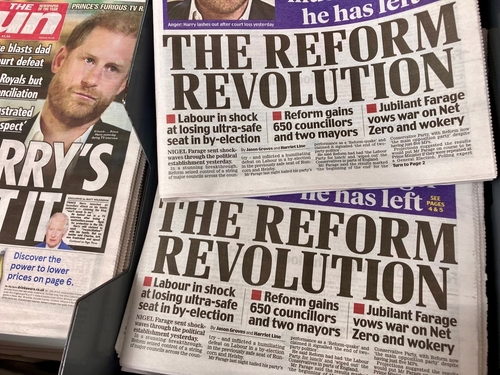Devolution at Speed: How history, identity, and local agendas are shaping the South West’s local government reorganisation

From Redcliffe-Maud to 2025: Waiting on a Big Bang
The current wave of local government reorganisation is often described as a revolution, but it can also be seen as the culmination of a 55-year journey. In 1969, the Redcliffe-Maud Commission outlined principles that still underpin reform today: moving from two-tier to unitary systems, creating authorities large enough to deliver modern services, drawing boundaries around economic geographies rather than traditional borders, and ensuring councils have the administrative capacity to deliver effectively.
Although the Heath government rejected the Commission’s specific proposals, successive reorganisations, from the 1974 county shake-up to the abolition of the GLC, the 1990s unitary wave, and the 2021–2023 restructurings, have gradually brought England closer to Redcliffe-Maud’s vision. The 2024 English Devolution White Paper recognises that continuity, stating: “Unitary councils can lead to better outcomes for residents… and improve accountability with fewer politicians.” The target population threshold of 500,000 or more, and the emphasis on “economic geographies,” reflects the Commission’s ideas.
Devon’s rapid realignment and Exeter’s proposals for unitarisation
In less than six months, councils in England have shifted from debating devolution in theory to redrawing 50-year-old boundaries. Deadlines, ambition, and political survival are fueling an unprecedented reshuffle.
After months of competing visions and cross-boundary tensions, Devon’s district councils, from North Devon to Teignbridge, united behind their “1-4-5 Plan.” This plan proposes to reorganise almost a million people across Devon and Torbay into two new unitary authorities. One would cover South Hams, Teignbridge, West Devon, and Torbay; the other would include East, Mid, and North Devon, Torridge, and Exeter.
However, consensus has its limits. Exeter City Council has broken ranks, positioning itself as the “regional capital” deserving its own unitary authority. Strategically, Exeter has certain advantages: it is the last city on the M5 before the peninsula, has its own airport, and its wider ‘Greater Exeter’ economic influence exceeds Plymouth City Council’s current population. Economically, 2022 data shows a mixed picture: Plymouth’s total GVA is slightly higher, but Exeter leads on GVA per hour worked. Both face the same issues: a low start-up rate and a small proportion of private sector jobs compared to national averages, highlighting that Devon’s major challenge, whether united or divided, is competing with the rest of England and the wider UK. Exeter councillors will meet this week to discuss their plans, setting the stage for potential friction within the region’s evolving governance map.
Government guidance to council leaders emphasises that “multiple proposals which unnecessarily fragment services, compete against one another… or do not sufficiently address local interests and identities” are not in taxpayers’ interests. Ministers prefer a single, agreed-upon plan but are willing to consider separate bids where consensus is impossible, giving Exeter political space to make its case while leaving Plymouth in a key position to influence the outcome.
The South West Peninsula plan and Cornwall’s calculated absence
Plymouth, Devon County, and Torbay have advanced further by supporting a South West Peninsula Mayoral Strategic Authority (MSA) that covers 1.2 million people and a £25bn economy, replacing the existing Devon & Torbay Combined County Authority. The goal is to unify transport, skills, housing, and marine innovation, with the first mayoral election scheduled for 2026 and the authority expected to be operational by 2027.
However, Cornwall remains outside. Having rejected a Level 3 deal in 2022 after 69% of the public opposed a directly elected mayor, it remains firmly against joining any Devon-led MSA. This creates strategic gaps: without Cornwall, the “peninsula” authority is geographically incomplete, lacking an £18bn economy and vital tourism, transport, and environmental assets. The Institute for Government notes that a combined Cornwall–Devon–Plymouth–Torbay authority would have both “better scale”, 1.8 million people, a significantly increased GVA, and a more complete economic geography.
Recent events highlight why bridging this gap will be so challenging. In July 2025, Cornwall Council voted convincingly to urge the UK Government to recognise Cornwall as the “fifth nation” of the United Kingdom, on par with Scotland, Wales, and Northern Ireland. Council Leader Leigh Frost described the move as essential for “better funding, stronger representation and a seat at the table in national decision-making,” while stressing Cornwall’s unique heritage and official status as a national minority since 2014.
This assertive stance reflects a deep-rooted identity and a strong desire for self-determination, indicating that even if other political, financial, and administrative barriers to a full peninsula authority could be overcome, Cornwall’s sense of identity will likely remain a significant – and possibly immovable – obstacle.
Opportunities and challenges in a fast-moving political landscape
Experience from the most prominent combined authorities offers a valuable perspective. Greater Manchester and the West Midlands have leveraged strong political leadership, Andy Burnham and (previously) Andy Street, to raise regional profiles, attract investment, and coordinate policy. Their scale matters: GMCA serves 2.8 million people and WMCA 2.9 million. By contrast, a Devon-only MSA would be significantly smaller, creating an imbalance when competing for national funding and influence.
However, the Institute for Government emphasises that successful devolution relies on a shared vision for the area and governance that mirrors functional economic geography. Achieving this will be challenging enough within Devon, with its competing institutional interests, not to mention across Cornwall, where entrenched opposition adds another layer of complexity. The pace of the current process worsens this issue. The Minister’s deadline of 28 November offers little time to reconcile differing agendas and establish the unity that lends credibility to combined authorities.
The Centre for Cities has previously warned against rushing devolution, noting that moving too quickly risks creating structures that must be reformed again shortly after, as seen with the Devon and Torbay Combined County Authority, which was created only to be replaced. Messy behind-the-scenes negotiations are one thing; establishing a governance body only to replace it quickly is another. It undermines credibility, damages legitimacy, and makes it more difficult to gain public and political trust.
The next 12–18 months will determine whether the South West’s reorganisation results in meaningful scale, coherence, and credibility, or if it leaves a patchwork of authorities poorly equipped to compete nationally. The history of Redcliffe-Maud reminds us that structural reform is a long-term process; whether the politics of 2025 will demonstrate the leadership, unity, and clarity of purpose required remains to be seen. Local government reorganisation has been so slow because of the sheer number of interconnected complexities involved. This is neither straightforward nor the end of prospective challenges. Reorganisation is one thing; whether it leads to better outcomes is quite another.
Read more like this

Short-Term Politics, Long-Term Costs

New Decade, New Approach: A framework for change - in theory more than in practice

Reform UK’s Challenge: Expanding Support Without Losing Its Core

From Policy to Practice: Tackling Violence Against Women and Girls in Northern Ireland

